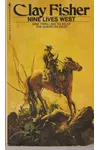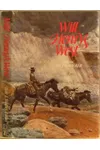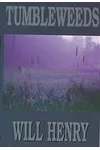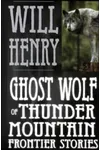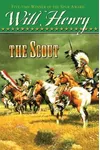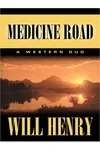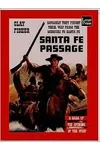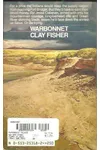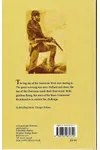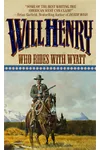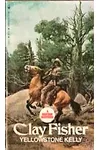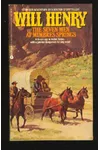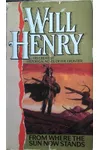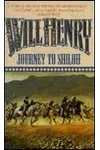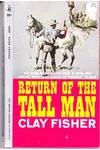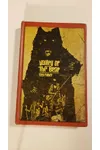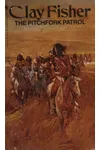Picture an American storyteller who spun tales of the Wild West, bringing rugged heroes and untamed frontiers to life—meet Henry Wilson Allen, better known as Will Henry and Clay Fisher! Born in 1912, this prolific author and screenwriter penned over fifty novels, selling 15 million copies and captivating readers with his vivid Western adventures. From dusty trails to silver screens, Allen’s work defined the genre with heart and historical grit.
With pseudonyms like Will Henry and Clay Fisher, Allen crafted stories that felt like a gallop through the American West. His knack for blending historical accuracy with thrilling narratives earned him five Spur Awards and a lasting legacy. Ready to ride into his world? Let’s explore the man behind the myths!
The Making of Will Henry
Born in Kansas City, Missouri, on September 12, 1912, Henry Wilson Allen—nicknamed 'Heck'—lived a life as varied as his stories. Before picking up a pen, he worked as a stablehand, shop clerk, and even a gold miner. In 1937, he landed at Metro-Goldwyn-Mayer’s cartoon studio, writing scripts for Tex Avery’s iconic animated shorts like Swing Shift Cinderella. Fearing studio backlash, Allen adopted pen names when he began writing novels, launching his literary career with No Survivors in 1950.
His early jobs and love for the West shaped his storytelling. Allen’s time as a cowhand and miner gave his work an authentic edge, while his screenwriter’s eye brought cinematic flair to his prose. This unique blend set him apart in the Western genre.
Will Henry’s Unforgettable Stories
Under the names Will Henry and Clay Fisher, Allen published over fifty novels, eight of which hit the big screen. His debut, No Survivors (1950), imagines a survivor of the Battle of Little Bighorn, weaving historical events with emotional depth. Yellowstone Kelly (1957) follows the daring scout Luther Sage Kelly, a hero who battles Sioux warriors and quotes classics with ease. Mackenna’s Gold (1963) is a treasure-hunt thriller, pitting its hero against scavengers in a race for Apache gold.
Allen’s style was rich with historical detail, often using devices like fictional journals to blur the line between fact and fiction. His stories didn’t shy away from the complexities of the West, giving Native American characters dignity and depth—a rarity for the time. Works like From Where the Sun Now Stands (1960), a Spur Award winner, chronicled Chief Joseph’s Nez Perce campaign with empathy and insight.
Whether writing as Will Henry or Clay Fisher, Allen’s prose was action-packed yet poetic, capturing the vast landscapes and human struggles of the frontier. His ability to craft compelling characters—outlaws, scouts, or warriors—kept readers hooked and inspired filmmakers to adapt his tales into classics like Pillars of the Sky (1956).
Why Will Henry Matters
Allen’s impact on the Western genre is undeniable. His novels, translated into multiple languages, brought the American West to global audiences, selling millions and shaping how we imagine the frontier. His five Spur Awards from the Western Writers of America and the Levi Strauss Award for lifetime achievement honor his mastery. By portraying Native Americans with nuance, he challenged stereotypes, adding depth to a genre often steeped in cliché.
Even decades after his passing in 1991, Allen’s stories resonate. They remind us of the West’s beauty and brutality, blending adventure with humanity. His work lives on in libraries, secondhand bookstores, and the hearts of Western fans worldwide.
- Born: September 12, 1912, Kansas City, Missouri
- Key Works: No Survivors, Yellowstone Kelly, Mackenna’s Gold
- Awards: Five Spur Awards, Levi Strauss Award for Lifetime Achievement
- Died: October 26, 1991, Van Nuys, California
Snag Yellowstone Kelly or No Survivors and dive into Will Henry’s thrilling Western world! Whether you’re a history buff or a fan of high-stakes adventure, his tales will sweep you away to the untamed frontier.
